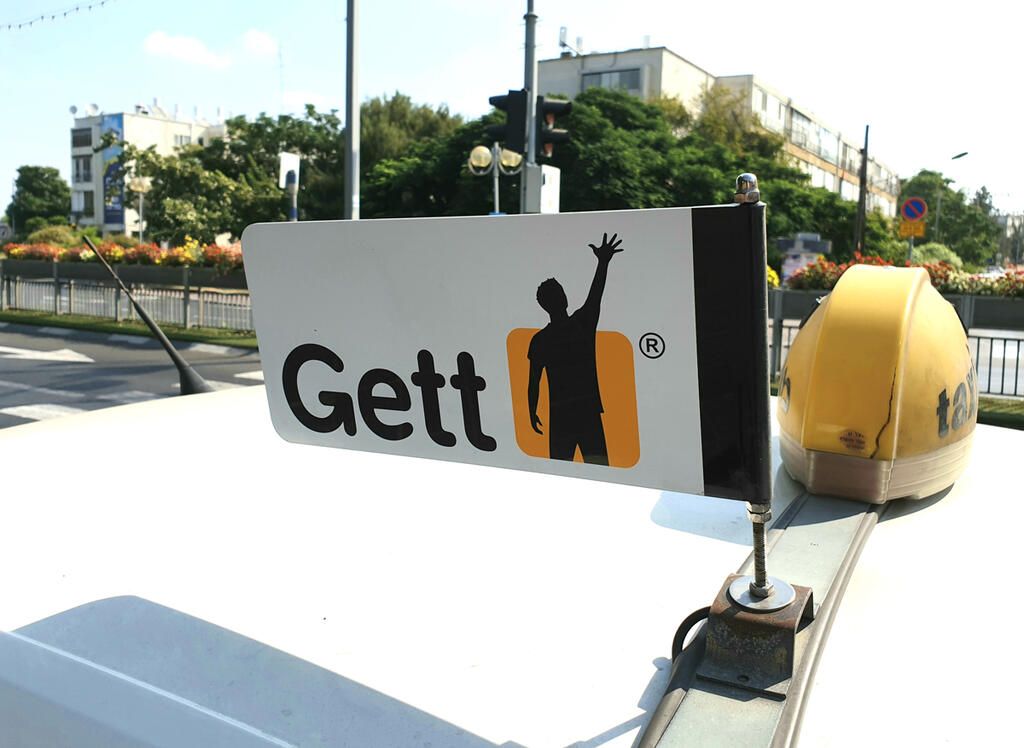[ad_1]
Israeli private equity fund Fortissimo Capital is currently in initial negotiations to acquire control of Gett, Calcalist has learned. The valuation of Gett in the negotiations is believed to be around $200 million.
Fortissimo, under the management of Yuval Cohen, is still in the early stages of due diligence. However, it appears that the scope of their investment will be approximately NIS 500 million (approximately $130 million). Fortissimo declined to comment on the report.
Established in 2010, Gett, which has raised a total of $900 million to date, has experienced upheavals and dramatic changes over the years. In the last year, it began to show signs of stabilization after a challenging period.
Senior executives at Gett mentioned in private conversations over the past year that their operations in Israel had reached an advanced stage of maturity and hinted at the possibility of putting the activity up for sale. Gett enlisted the services of a local entity to act as an investment bank, which led to contacts with Fortissimo.
Due to the early stage of negotiations, it’s not yet possible to assess the transaction’s structure and the extent of the shares Fortissimo is supposed to purchase. However, it is believed that Fortissimo is interested in acquiring a controlling stake.
The main shareholder of Gett is Swedish fund VNV Global, which owns a 43% stake and appears to have led the decision to bring in a partner. The Swedish fund initially invested a relatively small sum of $40 million in the purchase of a debt of $140 million from Russian Sberbank, and in total, has invested $107 million in Gett so far.
VNV is likely to recoup much of its investment should a deal go ahead, but other investors, such as the Baring Vostok fund and Len Blavatnik, who was one of the first investors in the company, are likely to experience losses. In 2016, Gett raised $300 million from the car manufacturer Volkswagen, but in 2018, it was reported in the German press that the company had already written off the investment.
Fortissimo will likely receive an option to purchase the remaining holdings in the company at a significantly higher value if it succeeds in expanding its operations.
Gett’s activity in Israel is profitable and boasts an EBITDA of NIS 40-50 million ($10-13 million). For the purpose of the deal, the activity in Israel may be separated into a subsidiary, and the capital influx will enable Gett to expand into additional territories.
Gett was founded 13 years ago by Dave Waiser and Roi More, who have not been actively involved in the company for years. Gett announced Waiser’s departure in May 2022. Max Krasnykh and Matteo de Renzi, who were previously COO and Managing Director of GTM and UK, respectively, replaced Waiser as co-CEOs. The company initially operated in the U.S., Russia, the UK, and Israel, but over the years, it withdrew from Russia and the U.S.
In 2019, Gett pursued an IPO on Nasdaq at a valuation of $1.1 billion through a merger with a SPAC named Rosecliff Acquisition Corp I. The potential IPO caused discontent among employees who were disappointed by the low valuation compared to the options they held.
In 2020, the company announced a round of funding totaling $100 million at a valuation of $1.5 billion and postponed the IPO. The merger with the SPAC was expected to inject $250 million into the company.
In April 2022, the IPO was canceled, and simultaneously, Gett announced its exit from operations in Russia, which, along with Great Britain and Israel, had been one of its three main markets since exiting the U.S. in 2018. The exit from Russia was due to the sanctions imposed by the U.S. on Russia following the war with Ukraine and fierce competition with Yandex.
A month after the IPO cancellation, Waiser announced his departure from the company.
In a recent report to investors, VNV stated that Gett would focus in the coming period on product improvement, solutions for business travelers, and new business opportunities. According to the report, Gett is currently the leading company in Israel in transportation services and has a significant presence in London and several other cities in England.
The fund began investing in Gett in 2014 and has invested $107 million to date. According to the report, the value of the investment decreased by 15% in 2023. Gett continues to be profitable in EBITDA terms since the third quarter of 2022.
The exit from Russia has improved Gett’s financial situation, reducing cash burn significantly and transitioning to a new operating model. Instead of offering taxi transportation services, Gett now defines itself as a corporate software company for organizations (B2B). It operates a cloud-based software platform that enables the booking of trips by taxis, limousines, and private cars. This service is offered to organizations worldwide, establishing active partnerships with over 2,000 organizations.
Uber, the world’s largest ride-hailing company, left Israel in June last year. According to reports, Uber made three attempts to acquire Gett, but no deal was reached. In the past, Gett tried to interest Uber in purchasing the assets of the New York-based Juno, which Gett bought for $200 million.
Gett said in response to the report: “Since Gett has become one of the only profitable companies in the world in its field, it has attracted significant interest from financial entities and strategic partners in Israel and around the world. The company cannot comment on its ongoing discussions with business entities.”
[ad_2]
Source link


